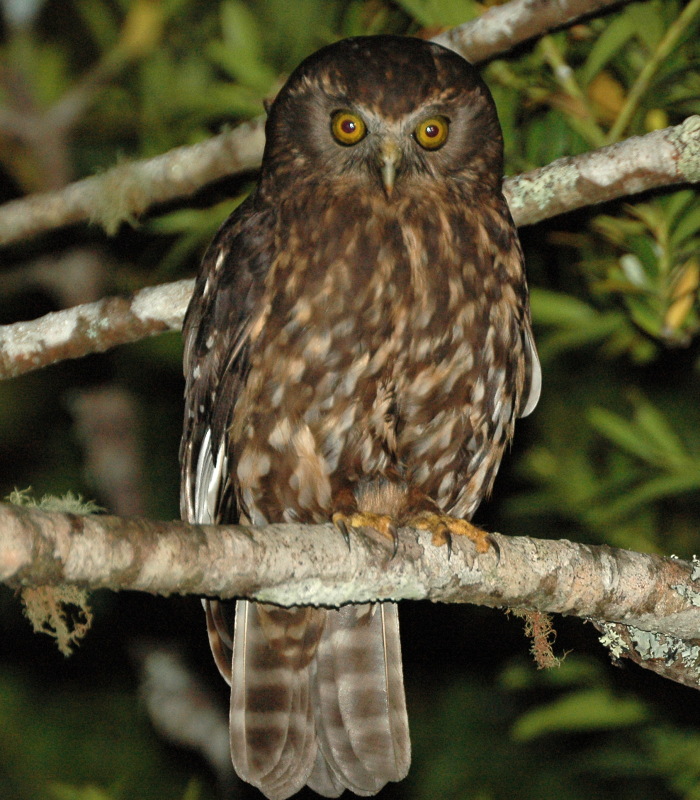Fishing at Night Chapter 7
“Morepork!Morepork! Morepork!” calleded the moreporks, and the echoesechoes of their calls came back acrossacross the water from the hills. There must have been twenty of them, callingcalling and calling, “Morepork! Morepork! Morepork!”

One by one the people splashedsplashed out of the water to the biggestbiggest fire – the other bonfiresbonfires were nearlyly out – and stayedstayed there, talkingtalking and singingsinging and listeninglistening to the moreporksmoreporks untiluntil the last fire burneded down to embersembers and they all went home.
“Mum is the only fishermanfisherman in our family,”family,” said Mr Gale.
“FisherwomanFisherwoman more likely,”likely,” said Mia. “But fishingfishing at night is lots of fun, whether you catch any fish or not!” And Ricky and Tim agreedagreed with her.
|
Comprehension Summarise what has happened so far in this narrative. Clarify these words: morepork, echoes, imitate, wade, estuary, hullabaloo, embers, agreed. Retell what has happened in this chapter. Make inferences and give opinions about:
What prediction can you make about what might happen next? What other ending could the narrative have had? What question could you ask about this chapter? Visualise these uses of descriptive language: echoes of their calls came back across the water from the hills; all the people wading began calling to each other; the whole estuary was full of the sound of it; the hullabaloo frightened the flounder away; one by one all the people splashed out of the water; talking, singing and listening to the moreporks; last fire burned down to embers. Make a connection with this chapter. What is the main idea or theme of this narrative? What do you think the author is trying to tell us? |
Word Study Verb endings: What happens when we add s, ed or ing to: begin, imitate, wade, go, agree. Other affixes: What happens when we add other prefixes and suffixes like s, en, est, ly, er to these words: echo, fright, big, near, like, fish. What two words make up these compound words: morepork, away, bonfire, fisherman, fisherwoman.
|